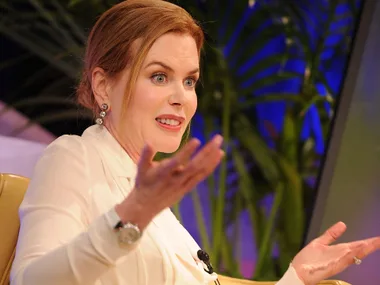Experts believe being debt free by 60 is definitely achievable… as long as you develop a plan early and stick to it by ignoring the spending “noise” that can get in the way (read: saying NO to the latest designer handbag calling your name).
Here, certified financial planner Dianne Charman tells Deborah Hutton about developing a strategy to be debt free, and the importance of prioritising savings in order to be financially secure for the future.
And as it seems, Dianne is a believer in hedging your bets when it comes to defining your retirement strategy by sticking to a balanced plan of reducing debt while building investments in superannuation, but she is cautious about relying on “downsizing” as a strategy for security.
“Downsizing doesn’t necessarily mean you are going to have a wad of cash in your pocket,” she says. “I really need people to understand what their debt strategy is. It’s a trade-off.
“Superannuation is an investment for your future which earns money and then your debt is costing you money so you’ve got to balance between the two,” she explains. “Because if we just explicitly ignore one for the other, you won’t end up in the right spot either. There’s a whole picture of the person’s financial well-being.”
On top that, Dianne explains the importance of prioritising savings for financial security, and reveals “excuses” as the most commonly used reason for not saving for the future.
“It’s just human nature (to make excuses) because we don’t actually think of ourselves ageing and we don’t think of ourselves retiring,” she says.
“Especially with these restrictions now within superannuation, the fact that women have a very interrupted work life and our superannuation over the years is interrupted significantly, we really need to be thinking about this earlier.”

Dianne also claims the classic excuse for not contributing to our superannuation is ‘I don’t have any money’.
“We always find money for the children, we always find money for the holidays, I’m pretty sure we need to prioritise our retirement in the same way,” she continues.
“Everything you do today will make a huge difference down the path and that’s just simply compounding interest.”
Dianne’s advice?
“Start earlier and we reap the rewards of actually investing smaller amounts earlier up and then it builds up over time.”
Investing in your future: The sooner, the better
If you were to contribute just $25 a week into your super (after tax) for the next 30 years, your super account could end up $660,001 better off at retirement than someone who relies solely on their employer’s minimum contributions. That’s more than enough to cover a year’s worth of retirement.
Set goals
When combined, setting goals and starting a budget are a powerful combination that can put you on the path to financial success. Creating wealth is all about making smart choices for the future, and no matter whether your wealth goals are large or small, taking some small steps now can often make a big difference in the future.
Setting goals can:
Give you a target to aim for
Allow you to establish priorities
Provide motivation
Persistence and desire
Provide a road map to achieve them



